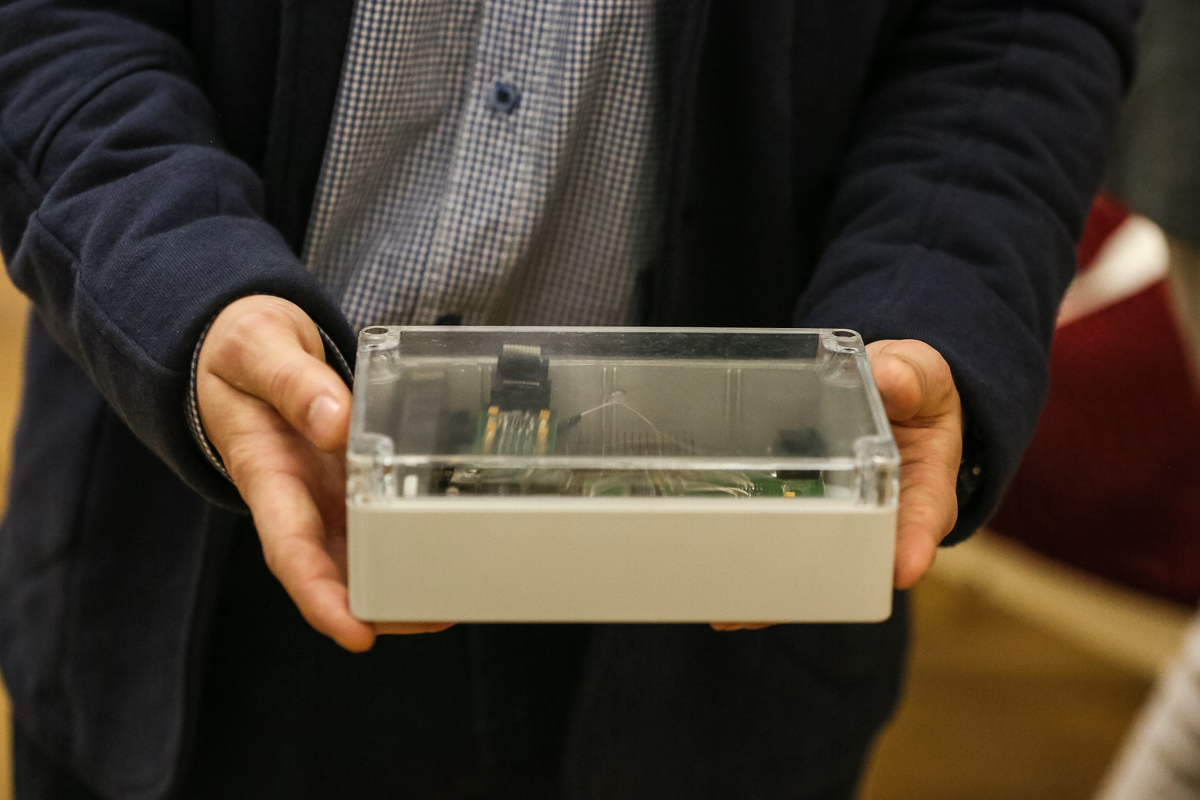St Petersburg University students develop a device to diagnose diseases using exhaled air

Participants of the Start-up – 2019 competition in the St Petersburg University Medhack team are working on developing a medical analyser – a portable device to analyse air composition. Such express diagnostics might potentially reveal various diseases, including those of the cardiovascular and endocrine system.
One of the upcoming trends in medicine is the use of mobile devices and wireless technologies. St Petersburg University students plan to market the unique device – a compact medical analyser.
The work of the device is based on the physical and chemical ionisation of gases. A person exhales a mixture of gases into the device’s tube. Gas molecules are ionised inside the analyser; and the energy of emitted photoelectrons makes it possible to identify the spectrum of substances in the exhaled air. Team members hope that based on the results obtained it will be possible to diagnose various diseases, including type 2 diabetes.
Glucose metabolism is defective in diabetics. This pathological process leads to a high concentration of acetone in the blood which is then released, including through the lungs. Therefore, it is possible to detect this gas in exhaled air.
Mikhail Kozyrev, team leader, fifth-year dental student
Technologies for diagnosis using expired breath have already been used in medicine, for instance the gas chromatograph, and the Fourier-transform and ion-mobility spectrometers. St Petersburg University students claim that compared to other developments, their device will have a number of significant advantages: a smaller size; a wider range of recognisable molecules; and a higher detection sensitivity.
Fifth-year dental students Elizaveta Bychkova and Maksim Korakov, third-year student of physics German Kochnev, and fourth-year student of chemistry Danil Moskvichev are also involved in the research. Nataliia Sokolovich, Doctor of Science (Medicine), Head of the Department of Dentistry at St Petersburg University, is the scientific supervisor for the project.
‘Should we succeed in developing a medical analyser, it is very likely to be in demand. The device will make it possible for people to reduce the duration and frequency of medical examinations and visit the doctor less often,’ said Mikhail Kozyrev.
Another advantage of this device is its non-invasive nature. The express test does not need to penetrate through natural body barriers – skin or mucous membranes. This is an important factor for people with chronic diseases who regularly undergo medical tests.
The students have already created the first prototype and are now working on reducing the size of the device. The developers plan that the medical analyser will be of a size comparable to a universal external power bank. In order to calibrate the device and obtain more accurate results, the authors of the start-up project conduct testing in a vacuum system.

